GPILS Alumni Highlights
Molecular Medicine

Gurmannat Kalra, PhD
Gurmannat Kalra is a Computational Biologist at GSK, a global biopharma company that prioritizes innovation in vaccines and specialty medicines, maximizing the increasing opportunities to prevent and treat diseases. In this role, she analyzes genomic data using large scale computational methods to understand mechanisms of disease. Dr. Kalra holds a PhD in Molecular Medicine from the University of Maryland Baltimore School of Medicine and a BS in Biochemistry from Rowan University. Dr. Kalra completed her PhD studies in the lab of Dr. Seth Ament where she focused on multi-omic analysis of hearing difficulty risk loci and gene regulatory networks in the mammalian cochlea. Drawing on her scientific training and work, Dr. Kalra creates interpretive artwork that blends technical precision of molecular biology with the expressive power of painting and digital media. In fact, her interpretive painting on hierarchical clustering was featured on the cover of Genetics in Medicine, the official journal of the American College of Medical Genetics and Genomics. You can check out her artwork by clicking here.

Michael Kessler, PhD
Dr. Michael Kessler is Manager of Statistical Genetics at Regeneron, a leading biotechnology company using the power of science to bring new medicines to patients in need. In his role as a geneticist, Dr. Kessler applies statistical genetic techniques and modeling for the identification and interpretation of biological targets. Dr. Kessler holds a PhD in Molecular Medicine from the University of Maryland School of Medicine and a BA in Biology/Biological Sciences from University of Southern California. He completed his thesis work in the lab of Dr. Timothy O’Connor, where he studied variant prediction in diverse populations, cancer genetics, and de novo mutation. Throughout his PhD studies, Dr. Kessler demonstrated outstanding innovation in the field of applied population genetics, yielding over a dozen publications-- many of which were first-author publications.

Amber Mueller, PhD
Dr. Amber Mueller is a Scientific Editor at Cell Metabolism, Cell Press, an all-science publisher of over 50 scientific journals-- many of which are among the most reputable in their fields. In this role, she evaluates the impact, depth and rigor of scientific papers submitted to the journal and manages the peer review process. Dr. Mueller also collaborates with leading experts in the field to host symposia, communicate newly published work and drive scientific progress in key-defined areas. Prior to her current role at Cell Press, Dr. Mueller was a postdoctoral fellow in David Sinclair’s lab at Harvard Medical School. Using her background in studies of muscular dystrophies, her research focused on testing if epigenetic reprogramming could prevent or reverse aging in vivo, using muscle as model tissue. Dr. Mueller holds a PhD in Molecular Medicine from the University of Maryland School of Medicine and a BS in Physiology and Neurobiology from the University of Maryland. She completed her thesis work in the lab of Dr. Robert Bloch where she studied muscular dystrophy disease modeling and muscle regeneration. Throughout her PhD studies, Dr. Mueller dedicated countless hours to the betterment of the Molecular Medicine Program and the Graduate Program in Life Sciences. She was even awarded the prestigious Elaine Miye Otani Memorial Award for service and superior academic performance.

Marey Shriver, PhD
Dr. Marey Shriver is the Executive Director for Faculty Development of the Center for Advanced Research Training and Innovation (CARTI) at the University of Maryland School of Medicine. In this role, she supports research training and career development of early-stage investigators. Dr. Shriver has been working in the field of career/professional development for nearly eight years. She holds a degree in Molecular Medicine from the University of Maryland School of Medicine and a BS in Biochemistry from the University of North Texas. Dr. Shriver completed her PhD studies in the lab of Dr. Aikaterini Kontrogianni-Konstantopoulos where she focused on identification of the mechanism through which the giant obscurins suppress tumor formation through modification of cell-cell adhesion and cell signaling in breast epithelial cells.
Biochemistry and Molecular Biology

Victoria D'Souza, PhD
Dr. D’Souza is Professor of Molecular and Cellular Biology at Harvard University. She earned her PhD from the University of Maryland, Baltimore County in 2002. Dr. D’Souza’s research uses NMR and other biophysical and biochemical methods to characterize the structures of viral RNAs and RNA-protein complexes at the atomic level. These tools are principally directed at mechanisms controlling reverse transcription and gene translation in retroviruses like HIV, Human T-cell leukemia virus and Moloney murine leukemia virus (MLV).
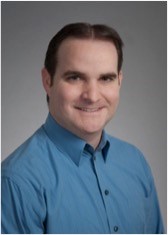
William M. Mahoney, PhD
Dr. Mahoney is Associate Professor of Pathology at the University of Washington (UW). He earned his PhD in 2004, then worked as a postdoctoral fellow at UW. Dr. Mahoney’s research focuses on the mechanisms of vascular development and regeneration during tissue injury. He was awarded a K99/R00 Pathway to Independence award in 2006, and transitioned to a faculty position in 2008 in the UW Department of Pathology, Center for Cardiovascular Biology, and Institute for Stem Cell and Regenerative Medicine. Outside of the laboratory, Dr. Mahoney has been the co-director of the Molecular Medicine and Mechanisms of Disease (M3D) PhD program since 2010, and was recently appointed co-director of the Office of Postdoctoral Affairs within the UW Graduate School. While in GPILS, he worked on his dissertation titled "Transcription Enhancer Factor-1 is regulated by specific interactions with co-regulatory activator proteins" and was mentored by Dr. Iain Farrance.
.jpg)
Nathan Wright, PhD
Dr. Nathan Wright is Associate Professor of Biochemistry at James Madison University. He graduated from the University of Maryland, Baltimore in 2008 and completed post-doctoral training at John’s Hopkins. His dissertation was titled "Structural and functional studies on S100A1" and he was mentored by Dr. David Weber. Dr. Wright’s major research interests are in muscle cytoskeletal proteins - these proteins have to be sturdy enough to provide a structural scaffold for the cell, yet flexible enough to allow muscles to move. To gain insight into this apparent paradox, Dr. Wright uses a variety of biophysical tools, including NMR, X-ray crystallography, MD, and SAXS. He is also deeply committed to undergraduate research and teaching. His NSF- and Research Corporation-funded work has produced 12 publications from JMU in the past 6 years, co-authored with more than a dozen undergraduate students.
Epidemiology and Human Genetics
.jpg)
Umut Aypar, PhD, FACMG
Umut Aypar, PhD, FACMG moved to USA from Cyprus for his undergraduate degree at Ohio Wesleyan University. His strong interest in Human Genetics led him to the graduate program at University of Maryland, Baltimore, where he completed his PhD. After receiving his degree, he completed Clinical Cytogenetics and Clinical Molecular Genetics fellowships at Mayo Clinic and received board certification in both by ABMGG. He then joined the staff at Mayo Clinic as a Co-Director of the Clinical Cytogenetics Laboratory. He authored 23 journal articles and 1 book chapter, and gave numerous talks at conferences. Recently, he was recruited by the Memorial Sloan-Kettering Cancer Center as a Co-Director of the Clinical Cytogenetics Laboratory.
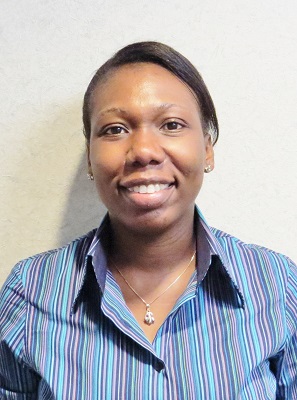
Modupe Coker, PhD
After graduation, and based in part on the skills I developed during my thesis, "HIV Infection and its Association with Caries and the Oral Microbiome in Nigerian Children aged 6 to 72 months", I was offered a faculty position at Geisel School of Medicine, Dartmouth College. My research interests focus on the application of microbial genomics, comparative genomics and metagenomic approaches to the study of host-bacteria immune interactions in the human body. My training as a dentist and a public health professional, and my doctoral training at UMB has adequately prepared me to teach and conduct independent research. I can attest to the fact that the high-quality scholarship offered at UMB provides many attractive opportunities within academia at many types of institutions. While in GPILS, Dr. Coker was mentored by Dr. Samer El-Kamary.
Gerontology
.jpg)
Israel Cross, PhD, Lieutenant Commander
Israel Cross, PhD, Lieutenant Commander, was a social, cultural, and behavioral sciences track student in the Doctoral Program in Gerontology at UMB/UMBC. Working with Dr. Ann Gruber-Baldini, he defended his dissertation, “Subjective Social Status: Individual and Neighborhood-Level Determinants in Association with Measures of Health and Health Promoting Behaviors,” in summer 2010. Immediately afterwards, Lieutenant Commander (LCDR) Cross began his professional career at the Centers for Medicare & Medicaid Services (CMS), Center for Clinical Standards and Quality, Division of Quality Improvement Innovation Model Testing, Quality Improvement & Innovations Group. He started by developing nursing home quality assurance and performance improvement (QAPI) technical assistance materials. Seeking to broaden his scope of work, LCDR Cross joined the Commissioned Corps United States Public Health Service (USPHS) in 2013. Being shaped by deployment experiences in the field, including implementing hospital QAPI practices while on an Indian Reservation, LCDR Cross became a program evaluator for the Partnership for Patient’s (PfP) initiative, where he currently engages Hospital Improvement Innovation Networks and federal partners to reduce patient harm and readmissions. In recognition of his achievements, most notably, he has received a Commendation Medal from the USPHS and several CMS Honor awards for dedication to transparency in health care.
.jpg)
Quincy Samus, PhD
Dr. Quincy Samus is Associate Professor in the Department of Psychiatry and Behavioral Sciences at the Johns Hopkins University School of Medicine. As the PI on several federally funded grants (R01, K01, CMMI HCIA) her research focuses on the care and delivery of health and supportive services to older adults and families affected by dementia. She is the Director of the Translational Aging Services Core (TASC), whosemission is to support the development, evaluation and practice-based implementation of pragmatic evidence-based interventions that address the diverse needs of persons with dementia and their families. She was also the 2015 Graduate Program in Life Sciences (GPILS) Alumnus Award winner. Quincy earned her PhD in Gerontology and MS in Epidemiology in 2007. Her dissertation focused on, “Differentiated Patterns and Determinants of Functional Dependency in Assisted Living Residents with and without Dementia.”
Molecular Microbiology and Immunology
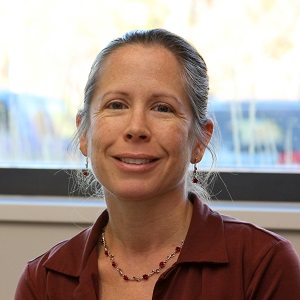
Kelly K. Baker, PhD
After graduating from Dr. Eileen Barry’s laboratory, Dr. Baker was a postdoctoral fellow at the Center for Vaccine Development under the mentorship of Myron M. Levine. This experience provided her hands-on training in global health field epidemiology, and an introduction to environmental health, specifically the role of water, sanitation, and hygiene conditions in the transmission of infectious diseases in young children enrolled in the Gates Foundation funded Global Enteric Multicenter Study. She then moved to Accra, Ghana as a Research Assistant Professor at Emory University to oversee the implementation of the Gates Foundation funded SaniPath fecal exposure assessment study. For the last three years, she has been at the University of Iowa as an Assistant Professor in the Department of Occupational and Environmental Health. Dr. Baker is building a two-pronged research program focused on understanding how WASH conditions in low income settings affect environmental exposure of young children to enteric pathogens (the Social Microbes Program) and preterm birth and low infant birth weight outcomes. Her lab’s ultimate goal is to identify the most effective intervention approaches to reduce global maternal and child health disease burden. Dr. Baker credits her training in microbiology at UMB for preparing her to develop the environmental microbiology tools that she employs today.
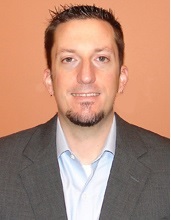
Brian Peters, PhD
I was a member of the inaugural GPILS class (Molecular Microbiology and Immunology, 2006-2010) and completed my dissertation work under the mentorship of Dr. Mark Shirtliff (title: Candida albicans-Staphylococcus aureusdual-species biofilms mediate invasive staphylococcal infection). Immediately after earning my PhD, I began postdoctoral work at LSUHSC in New Orleans, where I began studying fungal-bacterial interactions in the context of host innate immunity. After transitioning to research-track faculty in 2013, I obtained an NIH K22 Career Development Award and began my own laboratory at the University of Tennessee Health Science Center in 2015. My lab continues to focus on fungal pathogenesis, including identifying host and fungal mechanisms contributing to vaginal candidiasis, the most prevalent human fungal infection. Our long-term objective is to develop novel therapeutic agents to more quickly arrest symptomatic and recurrent disease. Since 2008, I have published over 50 peer-reviewed publications in the fields of bacterial and fungal pathogenesis, given 25 national/international talks, received multiple research excellence awards, and obtained multiple NIH research awards (R21 pending with a score of 14).
.png)
John Teijaro, PhD
My thesis work in the Molecular Microbiology and Immunology program, titled “Dissecting the Protective memory CD4 T Cell Response to Influenza Virus Infection,” focused on how memory T cells protect against influenza virus infection. I then joined Dr. Michael Oldstone, a renowned viral immunologist at Scripps Research Institute for postdoctoral training. There I had two fruitful projects, one on controlling virus-induced cytokine production and the other, a complete shift in how we regard type I interferon signaling during persistent virus infection. These findings yielded papers in Science, Cell and PNAS, three NIH grants, and a faculty position at Scripps where I train graduate students and postdocs. The MMI Program was a catalyst for my career and a productive environment for young trainees.
Neuroscience
.jpg)
Greg Bissonette, PhD
Dr. Greg Bissonette is a Scientific Review Officer in the Scientific Review Branch of the National Institute on Aging (NIA) and runs the Neuroscience of Aging Review Committee, NIA-N. He holds a Ph.D. in Neuroscience from the University of Maryland, Baltimore and a BS in Biological Psychology from Loyola University of Maryland. Before joining the NIA, Dr. Bissonette conducted research at the University of Maryland, College Park on computational and neurophysiological aspects of neural circuits involved in decision making, value estimation and rule learning, and explored these cognitive mechanisms through the lens of mental illness and drug addiction models.

Tracey O. Hermanstyne, PhD
Dr. Tracey O. Hermanstyne is an Instructor at the Washington University, St. Louis School of Medicine and serves as an Advisor for the Initiative for Maximizing Student Development (IMSD) program for the Division of Biology and Biomedical Sciences. Dr. Hermanstyne’s research is focused on identifying and understanding the molecular and cellular mechanisms that underlie the regulation of intrinsic neuronal excitability and how neurons, in a system, come together to coordinate specific behaviors. In addition, she serves as the Chairwoman for the Board of Directors for the Sophia Project; a non-profit organization that engages and empowers disadvantage young women in the St. Louis area. She holds a Ph.D. in Neuroscience from the University of Maryland School of Medicine and a BS in Biology from Howard University.
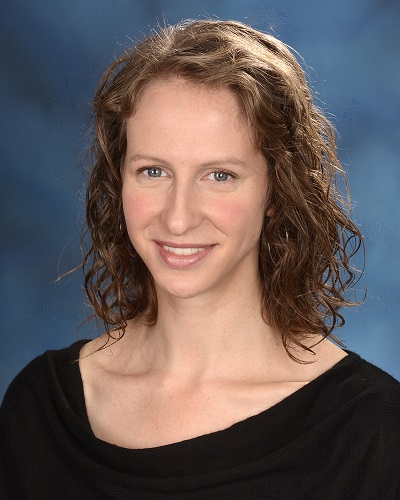
Melissa Konopko, PhD, MBA
Dr. Melissa Konopko is a Technical Programme Manager for the Global Alliance for Genomics and Health, a non-profit based at the Sanger Institute in Cambridge, UK. She manages teams focusing on setting data and policy standards to enable global genomic and clinical data sharing. Prior to her role at GA4GH she conducted neuroscientific research at both University of Maryland, Baltimore and Walter Reed Army Institute of Research and spent a decade in financial and business-focused roles. She completed her PhD in Neuroscience at the University of Maryland School of Medicine and her MBA through University of Maryland, University College.
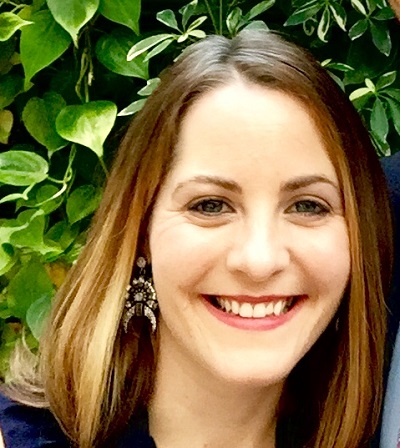
Sylvina Raver, PhD
Dr. Sylvie Raver is currently the Senior Manager of Scientific Training and Policy for the Society for Neuroscience (SfN) in Washington, DC. In this role, Sylvie provides leadership for SfN’s efforts to identify the needs of - and help shape - an evolving neuroscience workforce and manages the strategic development and execution for SfN’s scientific training resources for neuroscientists at all career stages. Dr. Raver holds a PhD in neuroscience from the University of Maryland School of Medicine and a BS in neuroscience from Lafayette College. She completed her doctoral research with Dr. Asaf Keller (University of Maryland School of Medicine) investigating the long-term neurophysiological and cognitive effects of adolescent cannabis exposure, and her postdoctoral training with Dr. Shih-Chieh Lin (National Institute on Aging) exploring the role of basal forebrain circuits in attention and decision making.
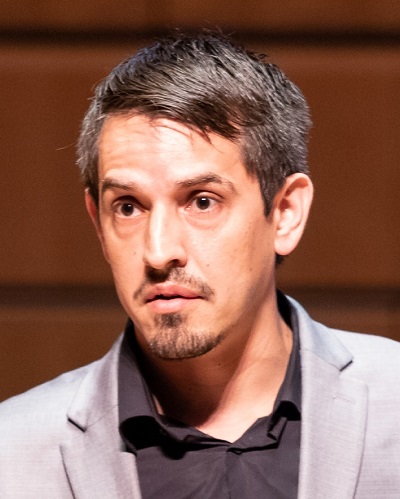
Hugo Tejeda, PhD
Dr. Hugo Tejeda is a Stadtman tenure-track principal investigator at the National Institute of Mental Health. He completed a Ph.D. in Neuroscience at the University of Maryland School of Medicine and at NIDA under the mentorship of Drs. Patricio O’Donnell and Toni Shippenberg. He also completed a postdoctoral fellowship with Dr. Antonello Bonci at NIDA. His research interests are in understanding how neuromodulation in motivational and emotional neural circuits contributes to information processing and how it orchestrates behavior. Hugo is also interested in identifying plastic changes in neuromodulation and synaptic integration in motivational circuits in psychiatric disorders to elucidate novel therapeutic targets and increase our understanding of conventional therapies.
Physical Rehabilitation Science
.png)
W. Todd Cade, PT, PhD
W. Todd Cade, PT, PhD, completed his dissertation entitled “Highly Active Antiretroviral Therapy and Decreased Aerobic Capacity in HIV” and graduated from the Graduate Program in Physical Rehabilitation Science in May 2002. During his studies at UMB, Dr. Cade was mentored by Dr. Randall Keyser. He then completed a postdoctoral fellowship in the Division of Endocrinology & Metabolism at Washington University School of Medicine. Currently, Dr. Cade is Professor of Physical Therapy & Medicine and Associate Director of Postdoctoral Fellowships in Physical Therapy at Washington University. Dr. Cade’s current research program focuses on discovery of mechanisms and treatments for cardio-metabolic disease.
.png)
Michelle Harris-Love, PT, PhD
Michelle Harris-Love is Associate Professor at George Mason University and directs the Mechanisms Of Therapeutic Rehabilitation (MOTR) laboratory at MedStar National Rehabilitation Hospital. She specializes in the use of non-invasive brain stimulation to understand and modulate mechanisms of motor recovery following stroke. Her PhD, with an emphasis in neuromotor control, was conferred in 2004 and she completed post-doctoral training at the NIH National Institute of Neurological Disorders and Stroke. Her dissertation was titled "Immediate adaptations to changing constraints in chronic stroke patients" and she was co-mentored by Dr. Jill Whitall, Dr. Gerald Smith, and Dr. Larry Forrester. She has published numerous manuscripts in prominent peer-reviewed journals; and her work has been funded by the National Institutes of Health, U.S. Department of Veterans Affairs, and the American Heart Association.
.png)
Elizabeth K. Rasch, PT, PhD
A physical therapist for nearly 40 years, Dr. Rasch was one of the first clinical specialists in neurology certified by the American Board of Physical Therapy Specialties. From 2001 to 2007 she was a service fellow in the Office of Analysis and Epidemiology at the National Center for Health Statistics, CDC. As Chief of the Epidemiology and Biostatistics Section in the Rehabilitation Medicine Department at the NIH Clinical Center since 2007, she currently oversees the work of 20 scientists and has been instrumental in implementing an inter-agency agreement with the Social Security Administration to improve their disability determination process. Her dissertation work was titled "Health of Community Dwelling Adults with Mobility Limitations in the United States: Prevalent and Incident Health Conditions and their Consequences" and she was mentored by Dr. Mary Rogers and Dr. Jay Magaziner.